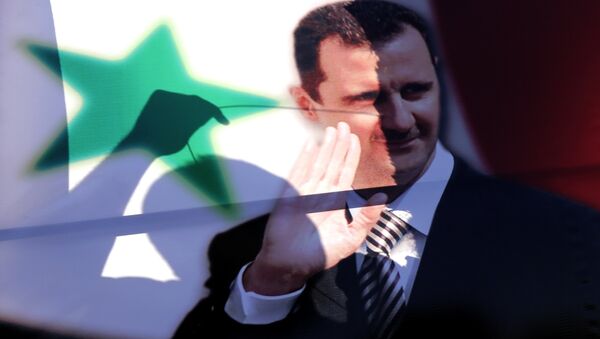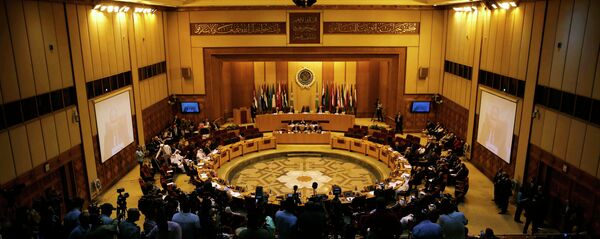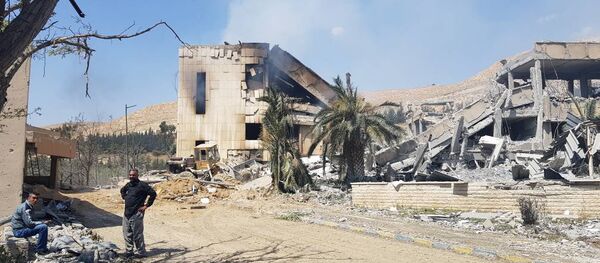Bashar al-Assad’s cousin, who has been one of the most vocal critics of the Syrian government, has told Bulgarian bTV that he doesn’t believe that Damascus was behind the chemical attacks in the country.
“I condemn what is happening in Syria, i.e. the chemical attack, but it is very important, however, to have a full and independent investigation, it is essential to find out who… had used the chemical weapons. … But I am against the conflict in the way it is evolving,” he said.
According to him, both militants groups, operating in Syria, and the Syrian authorities had access to chemical weapons.
“Both sides have the capacity to launch a chemical attack. In 2013, 12 members of Nusra Front* were arrested in Turkey for carrying 2 kg of nerve agents. A UN report by Carla Del Ponte was published the same year: She was investigating the developments in Syria and reported that the terrorists had a chance to use the chemical weapons in Syria. If you remember, she retired, having expressed her indignation over the actions of the horrible regime, as well as those of terrorists and extremists, on the other hand. I don’t believe that Bashar Assad has a key role [in this situation],” Ribal stated.
Ribal Assad, who has been living in exile in several Western countries, is the founder and director of the Organization for Democracy and Freedom in Syria. Following an attempted coup d’état by Ribal’s father, Rifaat al-Assad, who used to be the commander of Syria’s defense forces in the 1970s and 1980s during the tenure of Hafez al-Assad, Bashar’s father, the family had to flee to France.
READ MORE: Egypt's Sisi Calls for Int'l Probe Into Alleged Use of Chemical Weapons in Syria
On April 14, the United States, France and the UK fired over 100 missiles at Syria in response to the purported chemical attack in the town of Douma, allegedly carried out by President Assad’s forces; most of the rockets were intercepted by the Syrian air defense forces. Damascus has condemned the attack as an act of “aggression,” with Bashar Assad insisting that the trilateral strikes would only boost the country’s resolve to “fight and crush terrorism in every inch.”
Back in 2016, CIA director John Brennan revealed in an interview that Daesh had the "ability to manufacture small quantities of chlorine and mustard gas," and said that there were a "number of instances where ISIL [Daesh] had used chemical munitions on the battlefield." Later, in 2017, Brennan's words were confirmed by the Organization for the Prohibition of Chemical Weapons (OPCW), which holds Daesh accountable for the use of sulfur mustard gas in the Syrian village of Maarat Umm Hawsh in Aleppo in 2016.




